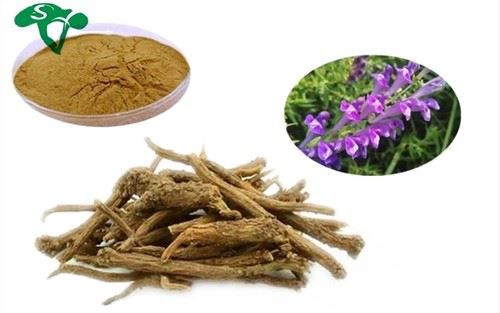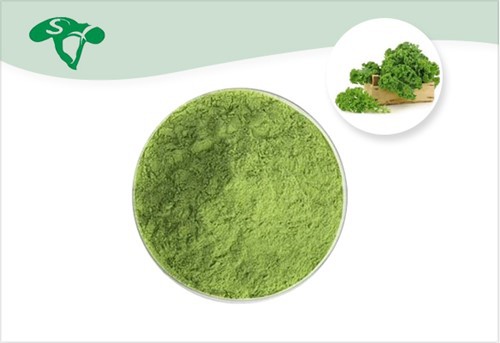Coenzyme Q10: The Ultimate Guide To This Powerful Antioxidant
2023-08-12 14:12:38
Coenzyme Q10, often referred to as the "miracle molecule," is a powerful antioxidant that has taken the health and wellness world by storm. Let us delve into the science behind Coenzyme Q10, exploring its numerous health benefits, natural sources, and supplementation options.
What is Coenzyme Q10?
Coq10, also known as ubiquinone, is a naturally occurring compound found in every cell of our bodies. It plays a crucial role in cellular energy production and acts as a powerful antioxidant, protecting our cells from damage caused by harmful free radicals. The powder is a fat-soluble substance, which means it is stored in our body's fatty tissues and can be absorbed more efficiently when consumed with dietary fats.
.jpg)
What does Coenzyme Q10 do?
Coenzyme Q10 Powder has several essential functions in our bodies, including:
a. Energy production: It is a vital component of the electron transport chain, a series of chemical reactions that generate energy in the form of adenosine triphosphate (ATP). This energy is used by our cells to perform various functions, such as muscle contraction and protein synthesis.
b. Antioxidant protection: As an antioxidant, coq10 powder neutralizes harmful free radicals, which are unstable molecules that can damage our cells and contribute to aging and various diseases. By protecting our cells from oxidative stress, Q10 helps maintain overall health and well-being.
c. Supporting heart health: This powder has been shown to improve heart function and reduce the risk of heart-related complications. It does this by enhancing energy production in heart cells, reducing oxidative stress, and promoting healthy blood flow.
Coenzyme Q10 Uses
CoQ10 has been widely studied for its potential health benefits, and it is commonly used as a dietary supplement to support various aspects of health. Some of the most popular uses include:
a. Heart health: Studies have shown that Q10 supplementation can improve heart function in people with heart failure, reduce the risk of complications after heart surgery, and lower blood pressure in individuals with hypertension.
b. Migraine prevention: Research suggests that CoQ10 may help reduce the frequency and severity of migraines by improving mitochondrial function and reducing inflammation.
c. Supporting healthy aging: As we age, our natural levels of Coenzyme Q10 decline, which can contribute to age-related health issues. Supplementing with CoQ10 may help counteract this decline and support overall health and well-being.
d. Exercise performance: Some studies have found that supplementation can improve exercise performance by increasing energy production and reducing oxidative stress during physical activity.

Coenzyme Q10 Side Effects
Q10 is generally considered safe when taken as a supplement in recommended doses. However, some people may experience mild side effects, such as:
a. Gastrointestinal symptoms: Some individuals may experience stomach upset, nausea, or diarrhea when taking Coenzyme Q10 supplements.
b. Allergic reactions: Although rare, some people may have an allergic reaction to Coenzyme Q10, resulting in symptoms such as rash, itching, or difficulty breathing.
c. Drug interactions: Q10 may interact with certain medications, such as blood thinners and blood pressure medications. If you are taking any prescription medications, it's essential to consult with your healthcare provider before starting Coenzyme Q10 supplementation.
What Foods are High in Coenzyme Q10?
While our bodies can produce Coenzyme Q10, we can also obtain it from certain foods. Some of the best dietary sources of Coenzyme Q10 include:
a. Organ meats: The heart, liver, and kidney are rich in Coenzyme Q10, making them excellent sources of this nutrient.
b. Fatty fish: Fish like salmon, mackerel, and sardines are high in Coenzyme Q10, as well as other essential nutrients like omega-3 fatty acids.
c. Meat: Beef, pork, and chicken contain moderate amounts of Coenzyme Q10, with higher concentrations found in the darker, more muscular cuts.
d. Nuts and seeds: Peanuts, sesame seeds, and pistachios are good plant-based sources of this powder.
e. Fruits and vegetables: While fruits and vegetables generally contain lower amounts of Q10 compared to animal-based sources, some options like spinach, broccoli, and strawberries still provide a decent amount of this nutrient.
Conclusion
Coenzyme Q10 is a strong cell reinforcement that assumes a vital part in our general well-being and prosperity. We can make well-informed decisions about how to incorporate this necessary nutrient into our daily lives by comprehending its functions, uses, potential side effects, and dietary sources. If you're interested in purchasing coenzyme q10 bulk powder, don't hesitate to contact sanxinherbs at nancy@sanxinbio.com. Our knowledgeable team is here to offer their expertise and help you discover the perfect mushroom extract product for your specific needs. Get in touch with us today!







